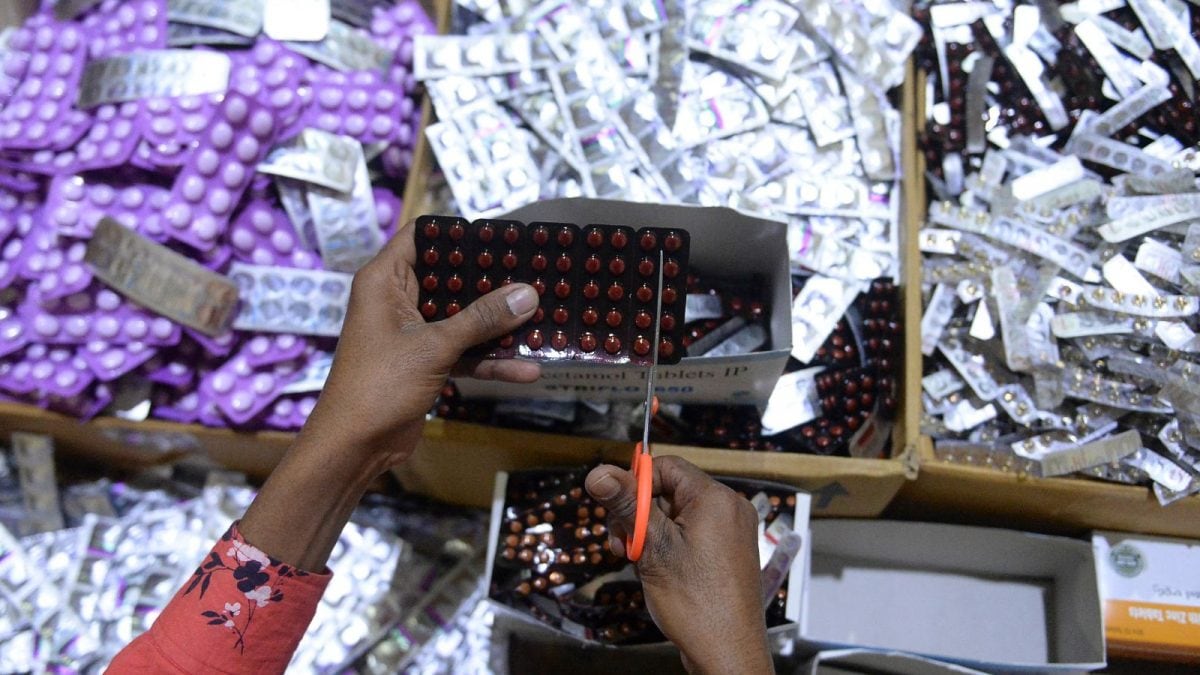Last Updated:
The Federation of Pharma Entrepreneurs (FOPE) warns that many MSMEs face closure due to costly GMP upgrades

Central to FOPE’s demand is an extension of the compliance deadline for the revised Schedule M. Representational image
The Ministry of Micro, Small and Medium Enterprises (MSME) has asked the Department of Pharmaceuticals and the Drugs Controller General of India (DCGI) to take action on concerns raised by small and medium drugmakers, after the Prime Minister’s Office (PMO) directed it to examine what industry groups have described as a brewing “crisis in the pharma sector”.
Recommended Stories
The move follows a July 18 letter sent by the lobby of small and medium drugmakers, Federation of Pharma Entrepreneurs (FOPE), to Prime Minister Narendra Modi, warning that thousands of micro, small, and medium (MSME) pharmaceutical units face shutdowns under the revised Schedule M mandate on good manufacturing practices (GMP).
The letter, routed to the PMO through BJP MP Shankar Lalwani, was sent to the MSME ministry by the Prime Minister’s Office on August 21 with directions to take appropriate action. On September 17, the MSME ministry in turn forwarded the matter to the pharma department, directorate general of foreign trade (DGFT) and the DCGI, seeking guidance and remedial steps.
News18 has accessed all letters and orders exchanged between PMO, MSME ministry, BJP MP Shankar Lalwani, and the Department of Pharma and DCGI.
The letter by FOPE warned that an uncompromising enforcement of the mandate could lead to shortages of essential drugs such as antibiotics, anti-diabetics and cancer medicines, drive up prices due to limited supply, and erode domestic manufacturing capacity, leaving India increasingly dependent on imports.
Thousands of Units on the Edge: FOPE’s Letter
FOPE told the government that as of May 31, 2025, only 1,700 out of an estimated 6,000 MSME pharmaceutical units had submitted their GMP upgradation plans. “The rest now stand at the edge of a regulatory cliff– facing shutdowns, stop-production notices, and possible license cancellations,” the letter said.
The lobby underlined that these units supply more than 40 per cent of India’s domestic generic medicine demand, making this not just a matter of compliance but one of survival, livelihood and national health security.
The letter highlighted the cost burden beyond reach. The industry body said that while large companies may absorb the financial shock, most MSME units in tier-2 and tier-3 cities face crippling pressure. “The cost of redesigning layouts, installing clean rooms, qualifying equipment, upgrading utilities, and training personnel can run into crores of rupees—often beyond the capacity of small businesses,” it said.
These companies often operate on “razor-thin margins” supplying affordable medicines to government hospitals, rural markets, and public health schemes. FOPE said they serve not just as manufacturers but as pillars of affordable healthcare in India.
Risk of Job Loss and Medicine Shortages
The association warned that more than 4,000 non-compliant units could be forced to shut down. Each employs between 100 and 200 workers, from pharmacists and quality officers to operators and packagers. The fallout could mean job loss for “over five lakh skilled and semi-skilled workers”. The letter added that the ripple effects would reach suppliers, logistics providers, packaging vendors, and local economies.
The letter cautioned that a strict clampdown could trigger shortages of critical medicines, including antibiotics, anti-diabetics and oncology drugs, push up drug prices due to reduced supply, and shrink manufacturing capacity, forcing India to rely more on imports.
Call for Extension
Central to FOPE’s demand is an extension of the compliance deadline for the revised Schedule M. The body has asked the government to provide at least two more years, warning that without such a reprieve, many firms will be left with no choice but to shut shop.
Now, the industry is awaiting government action. In the letter’s response, the MSME ministry, in its order, noted that the matter had been forwarded with the approval of the joint secretary and asked the pharma department and DCGI to take appropriate action under intimation to both FOPE and the ministry. For the industry, the issue is not just about regulatory compliance but about sustaining India’s position as a reliable supplier of affordable, high-quality medicines to global markets.
About the Author

Himani Chandna, Associate Editor at CNN News18, specialises in healthcare and pharmaceuticals. With firsthand insights into India’s COVID-19 battle, she brings a seasoned perspective. She is particularly pass…Read More
Himani Chandna, Associate Editor at CNN News18, specialises in healthcare and pharmaceuticals. With firsthand insights into India’s COVID-19 battle, she brings a seasoned perspective. She is particularly pass… Read More
September 21, 2025, 00:39 IST
Loading comments…
Read More



